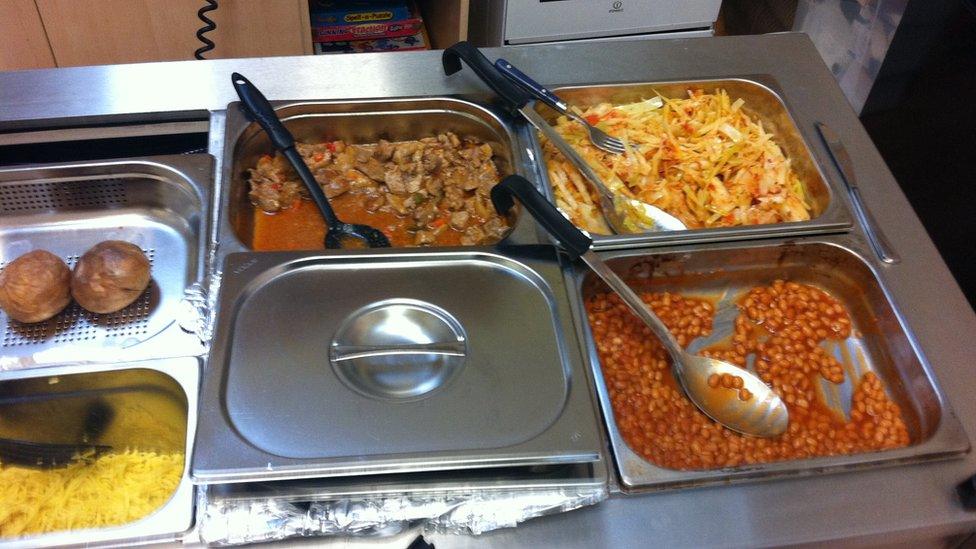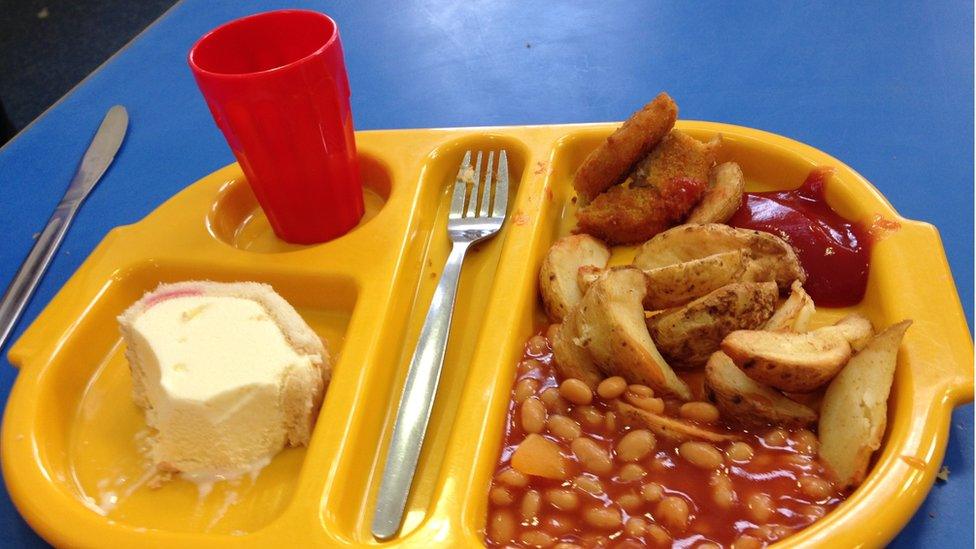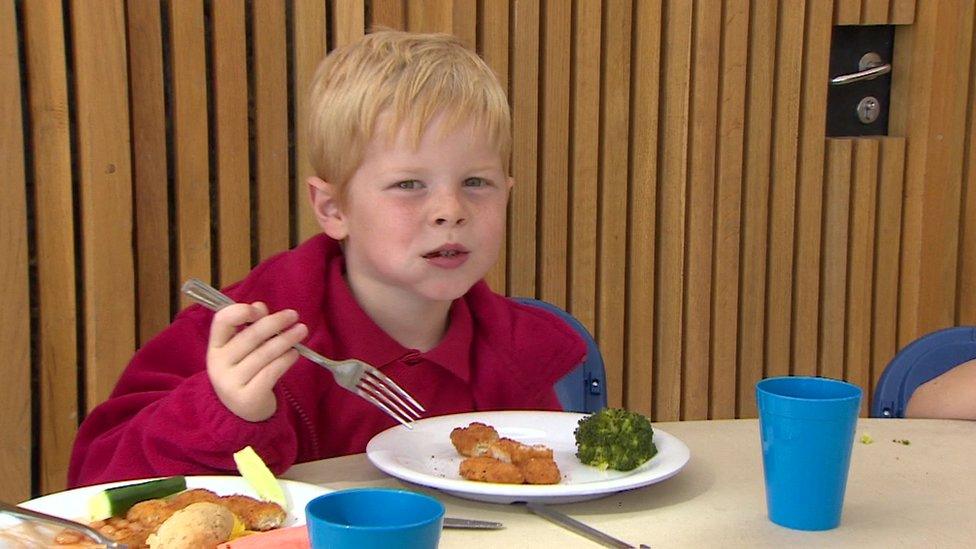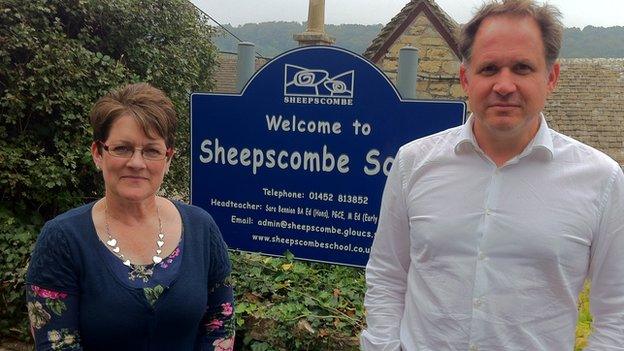Fears for free lunches in small schools
- Published

Universal free school meals were introduced in 2014
Head teachers of some small schools in England say they might have to use teaching budgets to help fund school lunches after a grant ends in July.
Since September 2014, schools with fewer than 150 pupils have received extra funding to help provide free hot meals for children aged four to seven.
The Department for Education said it has always been clear the transitional subsidy would not continue.
"It will affect teaching," one head teacher told The World at One.
Mark Squires, head of Selside Endowed Church of England School in Cumbria added: "What I think might suffer is extra support for children with special needs, support in early years."
Costs
Free lunches for children in the first three years of school were introduced in England in 2014.
Ministers felt certain smaller schools, some without kitchens and in remote areas, could struggle with the costs.
More than 4,000 were awarded grants of at least £3,000 for the first year and £2,300 in the second year but this will not continue into a third year.
Walcott Primary in Lincolnshire brings its lunches from a neighbouring school at an annual cost of almost £6,000.
The head teacher, Andrew Sewell, told Radio 4's World at One that some of it comes from the teaching budget but he has also been relying on the grant.
"We knew it was a temporary thing but I suppose we'd hoped that it would have carried on.
"I have a school with quite a high number of special needs," he said.
"I've paid for an additional teaching assistant to work with a child in the afternoons and that's pretty much the equivalent of that money we're spending on transport."
At Selside School Mr Squires said learning and support for children could be affected.
He said special needs and support in early years are "possibilities that we have thought about and looked at as governors. We haven't decided on any of those as a way forward yet."
The Department for Education said the grants totalled £32.5m over two years, on top of the £600m cost of the policy.
"We have always been clear that this funding was always intended to be temporary to help small schools to put their meals service on a more sustainable footing".
However, last year, a panel of experts - The Small Schools Task Force - recommended an "ongoing small schools subsidy" for schools serving fewer than 100 meals a day.
The Department for Education could not say when or if its report will be published.
Universal infant free school meals was a key Liberal Democrat policy in the Coalition Government.
The former Lib Dem schools minister, David Laws, told the BBC: "It would be very useful to see that report, for people to be able to see what evidence has been used and for the Department, if it disagrees with that view, to offer alternative evidence".
'Misguided'
The policy was originally proposed in the government-commissioned School Food Plan, co-written by Henry Dimbleby from the Leon restaurant chain.
He described the end of the grant as "sad, misguided and completely avoidable".
He suggested that with some larger schools making surpluses on the lunches, it should be possible "to reallocate the relatively small amount of money, about £22m, by giving those with a lot of pupils slightly less and the small schools slightly more."

A school meal at Selside School. There are fears hot meals could be replaced by sandwiches in some smaller schools
He fears some smaller schools "might be tempted to stop giving universal free school meals or potentially give sandwiches."
The National Association of Head Teachers' general secretary, Russell Hobby, said schools should not be "forced to choose between their legal duty to provide a hot meal and their main focus of providing a high standard of education".
- Published27 September 2015

- Published8 October 2014
